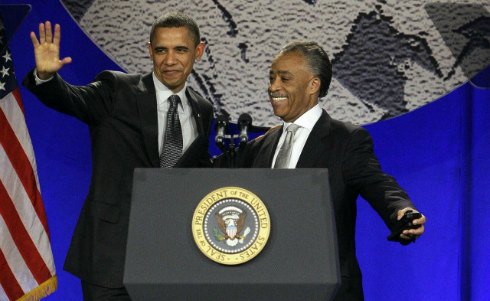
Dudley Randall’s poem, “It seems to me, said Booker T, I disagree, said W.E.B.” points out an issue that has plagued Black folks for generations. During Booker T’s time, some Blacks said he was working “for the man” as he tried to build an economic foundation for his people via education, industrial training, self-help, and business principles. W.E.B. DuBois said Washington’s program came along “at the correct psychological moment,” but he ended up being Booker T’s antagonist because Black people began to choose sides. Rather than take the best of both of those giants, we succumbed to the “divide and conquer” syndrome.
In 1915, Marcus Garvey decided to come to this country to meet with Booker T., who died before Garvey’s arrival. But, the naysayers and detractors soon started dividing the people again, pitting DuBois against Garvey instead of taking the best of what both offered and working toward our collective uplift.
Since then, we have seen similar scenarios played out, such as Malcolm and Martin, Stokely and Martin, Al and Jesse, Tupac/Biggie/Knight/Dogg and all that madness, Eddie Long and Al Sharpton, Smiley/West and Dyson/Harris-Perry, and the list goes on. It’s not that we should agree on everything; that would create a bunch of robots. We should, however, have enough sense and knowledge of the past and the present to deal with our personal disagreements in private while moving collectively and publicly toward one goal. Could our penchant for one-ups-man-ship be attributed to another syndrome called, the “HNIC,” as described in Norman Kelley’s excellent book of the same name?
All the silliness, rancor, redundancy, and, yes, jealousy among our people are both unnecessary and divisive. I recall when George Bush attended the 2003 Urban League convention but dissed the NAACP’s meeting. Marc Morial and Kweisi Mfume were at the helms of those two organizations, and the feathers started to fly about what George Bush did. More importantly, our folks began to take sides because Bush decided he would deal with Morial rather than the fiery Mfume.
As long as we, both individually and organizationally, are fighting one another and choosing sides, as if we are on different teams, our economic empowerment will always be an illusory, quixotic, and romanticized state of mind rather than a substantive realization.
In my hometown of Cincinnati, Ohio, our NAACP branch will be 100 years old in 2015. Under its current leadership over the past seven years, we have advanced from a fledgling 400 or so membership base and a tenuous financial position, to a 2,400 membership base and a long-term and stable financial position. We have also built strong, mutually beneficial, broad-based relationships – unprecedented in the history of this branch.
Around the first part of this year, 98 years after the founding of Cincinnati branch of the NAACP, a local chapter of the National Action Network (NAN) was established. Some say it was simply an effort to “compete” and make irrelevant the NAACP and its president, who overwhelmingly defeated his opposition candidate last November. Idiocy has prevailed since then, mainly because of a few malcontents and sore losers who “don’t like” the NAACP president and are desperately trying to bring him down. At the same time, the images of our two organizations are being dragged through the mud on, of all places, a “Black” radio station. How stupid is that?
The new president of the NAN chapter has not had the common courtesy to contact the leader of the NAACP branch to explore ways to cooperate and move forward on common agenda items. Rather, he has operated under the guise of “neutrality,” knowing all along that the main intentions of many of his founding members are divisiveness, rancor, adversity, and ultimate destruction of the NAACP branch – unless they can take it over. Their feeble attempts and bully tactics will not work. Still, it is sad to see a few jealous, envious, and spoiled Black folks attempt to stymy and negate the tremendous progress made in this town over the past seven years via the NAACP.
My use of Al Sharpton and Ben Jealous in the title of this article is just a generic representation of how some of our people have and continue to make Randall’s W.E.B./Booker T. poem relevant today. Al and Ben may disagree on some issues, but they are not trying to tear each other down.
Our penchant for choosing sides and trying to destroy the opposite side is detrimental to our progress. Whether we like it or not, we are all on the same team; and like on any sports team, the best players are starters and the less accomplished ones are benchwarmers. Yes, some on the bench may secretly hope for the demise of a starter so they can get into the game, but at least they are not sitting there outwardly booing their own team in order to get their chance to play.
Jim Clingman, founder of the Greater Cincinnati African American Chamber of Commerce, is the nation’s most prolific writer on economic empowerment for Black people. He is an adjunct professor at the University of Cincinnati and can be reached through his Web site, blackonomics.com.
